Foreign Exchange Scandal – 5 Big Banks Fined A Paltry US$3.3 billion
Five giant banks and US$3.3 billion – that’s how many players and the amount of penalty the global regulators are slapping them. In a latest financial scandal – British, American and Swiss regulators have found HSBC, Royal Bank of Scotland (R.B.S.), JPMorgan Chase, Citigroup and UBS guilty of manipulating the foreign currency markets. At stake is a mind-boggling US$5.3 trillion traded each day in foreign exchange – the world’s biggest financial market.
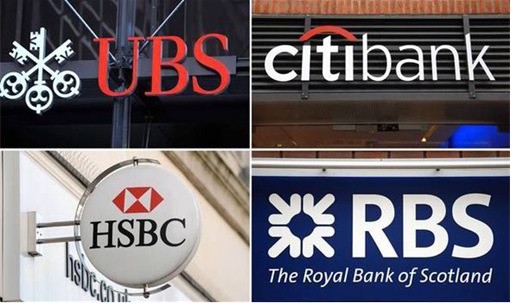
Switzerland’s UBS swallowed the biggest penalty paying US$661 million to Britain’s Financial Services Authority (FCA) and the U.S. Commodity Futures Trading Commission (CFTC). The exchange rates are set daily, but the five big banks were accused of rigging the rates so that their own banks could profit. Another British bank – Barclays – was supposed to join the US$3.3 billion settlements, but dropped out at the last minute.
Separately, the Commodity Futures Trading Commission in the United States imposed US$1.4 billion in penalties against Citigroup, HSBC, JPMorgan, R.B.S. and UBS. The Financial Conduct Authority of Britain, on the other hand, had reached a settlement of US$1.7 billion in fines on the same five banks. And regulators in Switzerland penalized UBS about US$138 million.
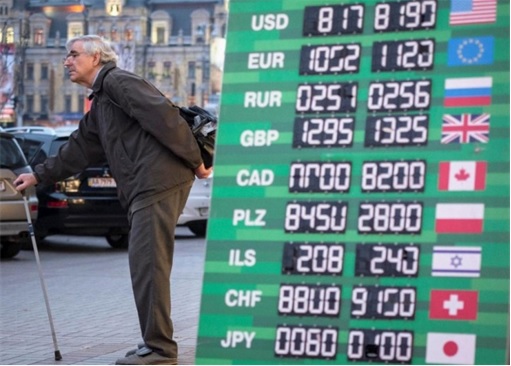
The fines follow a 13-month investigation by regulators into claims that the foreign exchange market – in which banks and other financial firms buy and sell currencies between one another – was being rigged. About 40% of the world’s dealing is estimated to go through trading rooms in London. There is no physical forex marketplace and nearly all trading takes place on electronic systems operated by the big banks and other providers.
The British financial authority claims the banks allowed traders in the foreign exchange markets to put the interests of their banks ahead of those of their clients, between Jan 2008 to Oct 2013. The activities included sharing confidential client information and attempts to manipulate currency rates by colluding with traders at other companies. The regulators exposed documents detailing conversations among traders in electronic chat rooms.
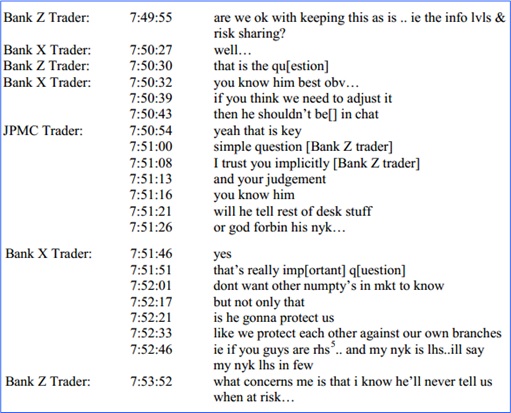
The traders apparently used jargon, incorrect spelling, bad language and typos during their chats. They used code names to identify clients without naming them and created online chat-rooms with pseudonyms such as “the players”, “the 3 musketeers”, “the A-team” and “1 team, 1 dream” in which to swap information. So far, 30 of dealers have been suspended or fired for sharing confidential information.
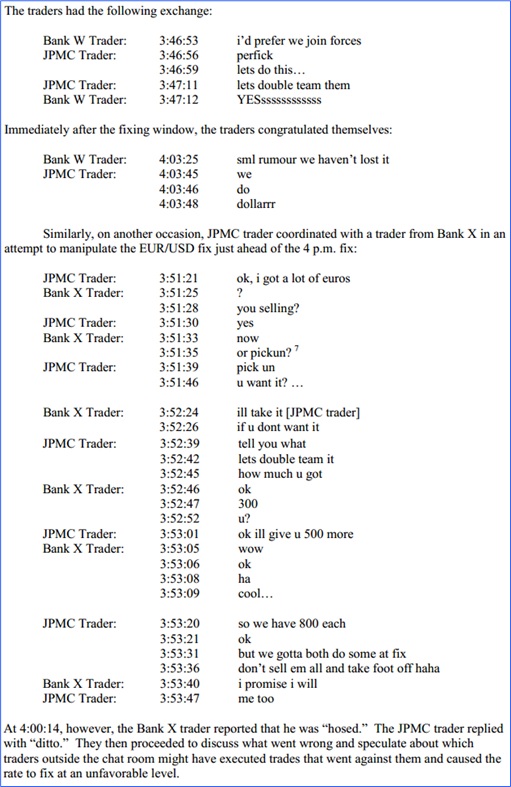
To make profits, traders would manipulate the relevant currency rate in the market by ensuring that the rate at which the bank had agreed to sell a particular currency to its clients was higher than the average rate it had bought the currency. Still, the fines of US$3.3 billion is laughably small for the five banks that regularly report billions of dollars in annual profit. While the banks could still face criminal charges in the matter, the chances are very slim.
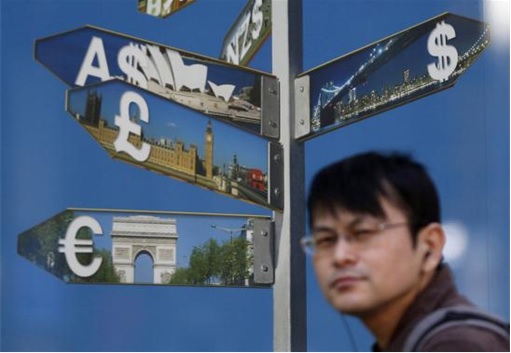
RBS, which is 80 percent owned by the British government, received client complaints about foreign exchange trading as far back as 2010 and a year later a dealer at the bank questioned its information sharing. The bank claimed it regretted not responding more quickly to the complaints. Perhaps the correct statement should be – the bank deliberately ignored the complaints, until it is caught red-handed.
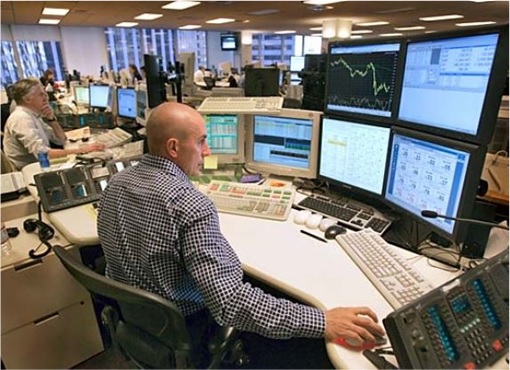
Amusingly, no individuals are named, let alone prosecutions. On average, each bank is fined in excess of US$600 million but less than US$700 million. RBS was fined US$634 million, HSBC – US$618 million, JPMorgan – US$662 million, Citibank – US$668 million and UBS is poorer by US$661 million. Will the banks do it again after this scandal and fines? Absolutely. The profits to be made are simply too mouth watering compares to the risks of being caught and fined.
http://www.financetwitter.com
Five giant banks and US$3.3 billion – that’s how many players and the amount of penalty the global regulators are slapping them. In a latest financial scandal – British, American and Swiss regulators have found HSBC, Royal Bank of Scotland (R.B.S.), JPMorgan Chase, Citigroup and UBS guilty of manipulating the foreign currency markets. At stake is a mind-boggling US$5.3 trillion traded each day in foreign exchange – the world’s biggest financial market.

Switzerland’s UBS swallowed the biggest penalty paying US$661 million to Britain’s Financial Services Authority (FCA) and the U.S. Commodity Futures Trading Commission (CFTC). The exchange rates are set daily, but the five big banks were accused of rigging the rates so that their own banks could profit. Another British bank – Barclays – was supposed to join the US$3.3 billion settlements, but dropped out at the last minute.
Separately, the Commodity Futures Trading Commission in the United States imposed US$1.4 billion in penalties against Citigroup, HSBC, JPMorgan, R.B.S. and UBS. The Financial Conduct Authority of Britain, on the other hand, had reached a settlement of US$1.7 billion in fines on the same five banks. And regulators in Switzerland penalized UBS about US$138 million.

The fines follow a 13-month investigation by regulators into claims that the foreign exchange market – in which banks and other financial firms buy and sell currencies between one another – was being rigged. About 40% of the world’s dealing is estimated to go through trading rooms in London. There is no physical forex marketplace and nearly all trading takes place on electronic systems operated by the big banks and other providers.
The British financial authority claims the banks allowed traders in the foreign exchange markets to put the interests of their banks ahead of those of their clients, between Jan 2008 to Oct 2013. The activities included sharing confidential client information and attempts to manipulate currency rates by colluding with traders at other companies. The regulators exposed documents detailing conversations among traders in electronic chat rooms.

The traders apparently used jargon, incorrect spelling, bad language and typos during their chats. They used code names to identify clients without naming them and created online chat-rooms with pseudonyms such as “the players”, “the 3 musketeers”, “the A-team” and “1 team, 1 dream” in which to swap information. So far, 30 of dealers have been suspended or fired for sharing confidential information.

To make profits, traders would manipulate the relevant currency rate in the market by ensuring that the rate at which the bank had agreed to sell a particular currency to its clients was higher than the average rate it had bought the currency. Still, the fines of US$3.3 billion is laughably small for the five banks that regularly report billions of dollars in annual profit. While the banks could still face criminal charges in the matter, the chances are very slim.

RBS, which is 80 percent owned by the British government, received client complaints about foreign exchange trading as far back as 2010 and a year later a dealer at the bank questioned its information sharing. The bank claimed it regretted not responding more quickly to the complaints. Perhaps the correct statement should be – the bank deliberately ignored the complaints, until it is caught red-handed.

Amusingly, no individuals are named, let alone prosecutions. On average, each bank is fined in excess of US$600 million but less than US$700 million. RBS was fined US$634 million, HSBC – US$618 million, JPMorgan – US$662 million, Citibank – US$668 million and UBS is poorer by US$661 million. Will the banks do it again after this scandal and fines? Absolutely. The profits to be made are simply too mouth watering compares to the risks of being caught and fined.
http://www.financetwitter.com
